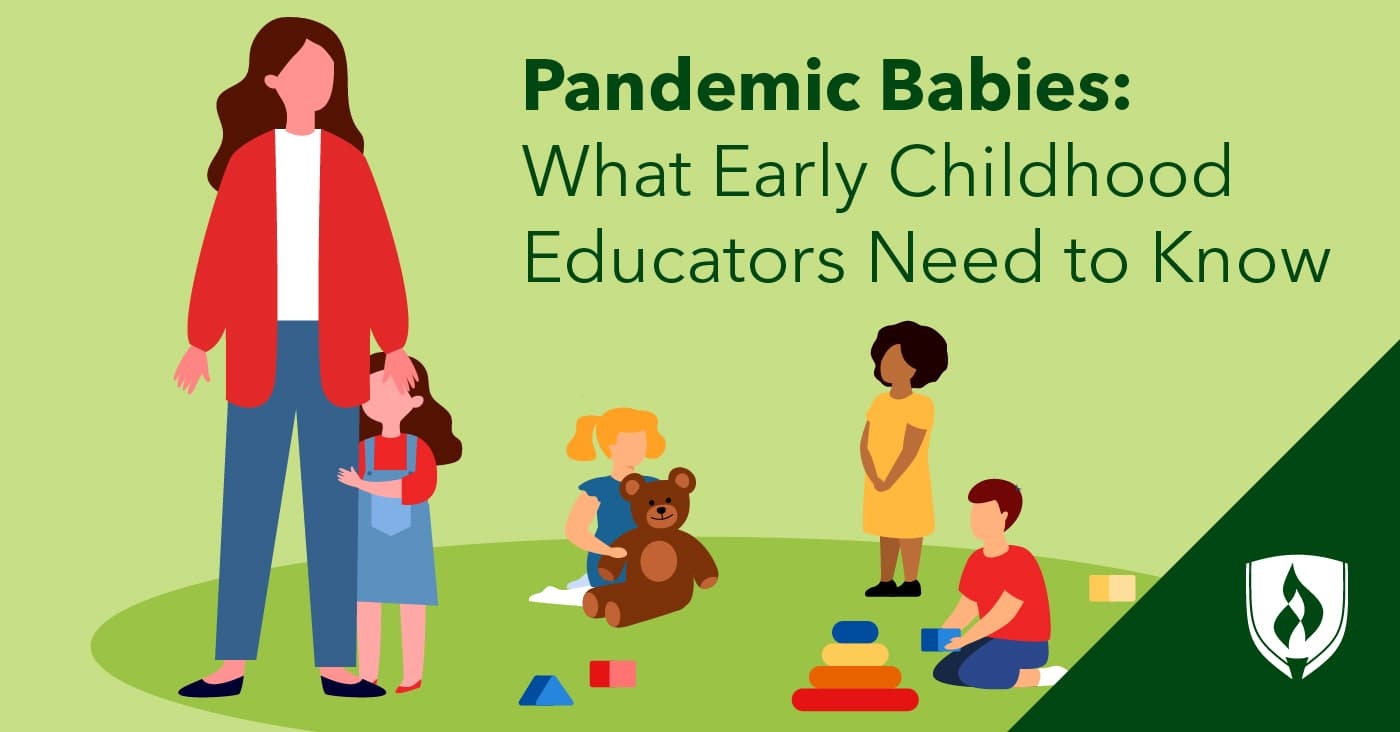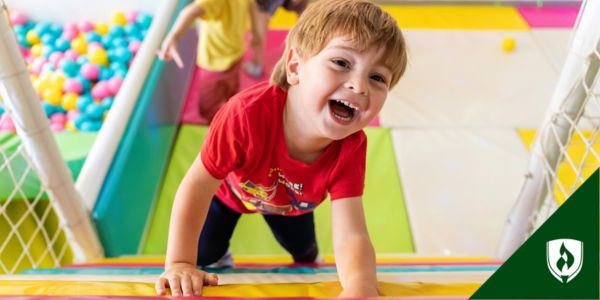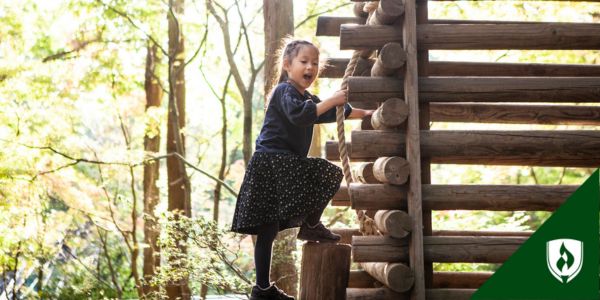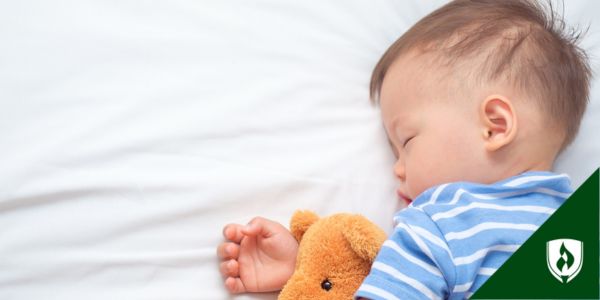The COVID-19 pandemic changed so many aspects of life; trying to monitor the impacts is kind of like trying to measure ripples on the surface of the ocean. Where do you even start when everything is shifting in so many different directions?

If you know anyone who gave birth during the pandemic, you probably witnessed some of this chaos up close. Parents who brought a new infant home before vaccines became available reported staggering levels of stress and isolation, terror over bringing their baby anywhere and grief over the separation from loved ones who would typically assist during this difficult period.
On top of that, rates of postpartum depression skyrocketed during the pandemic. Studies from the University of Michigan and from The Third Affiliated Hospital of Southern Medical University in Guangzhou, China, both found postpartum depression in approximately a third of their respondents (which is about triple the average rate).1,2 This significant maternal stressor further altered the world pandemic babies arrived in.
With so many changes impacting babies born during the pandemic, many people are wondering if long-term issues might arise. While further research is needed to truly answer these questions, some pandemic babies are already entering toddlerhood and interacting with early childhood education (ECE) experts in care centers, classrooms and more.
These professionals are keeping an eye on childhood development and making choices about what to focus on in their ECE environments. If you are working with young children (or considering a career in ECE), keep reading! We asked early childhood experts to weigh in on what they are noticing or watching over in pandemic babies.
What research is available so far on pandemic babies?
Fearful hypothesizing is no way to make decisions when it comes to children. If you’re wondering what kind of research is out there so far, you are probably interested in making more informed choices.
In one of the earliest studies on a cohort of pandemic-born babies in 2020, researchers from Columbia University Irving Medical Center3 found no connection between exposure to SARS-CoV-2 and the health or development of babies—findings that greatly encouraged the medical community! However, the study did note delays in certain early development benchmarks for these babies.
While a single study is hardly definitive, it does provide a starting point for further hypotheses and questions. Researchers theorized that the context the pandemic created for these children and their families could cause delays in typical neurodevelopment patterns.
“Social–emotional development has been one of the biggest areas of concern,” says Mary Muhs, School of Education dean at Rasmussen University. “With children isolated or with only family members for so long, have children lost communication and social skills?”
So far, Muhs hopes that any initial effects like antisocial behaviors will be mitigated as kids return to child care and get the chance to practice the social skills they may have missed out on. “Children are resilient, but we need to give them time and have patience.”
What should early childhood educators know about the pandemic’s impact?
Some pandemic impacts are particularly relevant to ECE experts. If you work with young children, you might want to consider some of the following changes that could contextualize what your kids might be dealing with.
1. Access to important therapies became difficult or impossible for families
One of the largest areas of concern for ECE experts is children with existing developmental disorders or disabilities who could no longer access their therapies when the pandemic began. “In 2020, many services such as speech, occupational and ABA therapies were postponed or changed to virtual services,” says Leah Alexander, MD, pediatrician and consultant for Mom Loves Best®. “Speaking with many frustrated parents, it is nearly impossible for an infant or toddler to look at a screen long enough to benefit from a virtual therapy session.”
If these therapies were rendered less effective by the closure of in-person services, the toddlers and preschoolers who needed that help could fall much farther behind. And it hasn’t all been solved as of 2022, Alexander explains. “Two years since the onset of the pandemic, some families continue to have difficulty arranging services for their special needs children.”
Additionally, some families have experienced long wait times to get a developmental pediatric evaluation for their children, according to Alexander. She saw families wait over a year to discover if their child had autism or other developmental concerns that would really benefit from early intervention.
What can early childhood educators do? Awareness that some children might not be getting the therapies or evaluations they need can go a long way. As always, keeping the lines of communication open with parents and caregivers is hugely important in ECE. Alexander says children who need these services might need extra support when they begin school. That may be a conversation that educators, administrators and school boards need to have together.
2. Changing parental priorities
The pandemic caused many people to take a step back, reflect and make changes for their families, according to Ashley Jefferson, author and owner of Nguzo Babies. “Much of what I’ve noticed is a sense of urgency in sorting out priorities. Ultimately, I found that if parents kept as much of a level head as possible, the children benefited from less stress.”
But Jefferson also noticed that the extra stress so many parents experienced during the pandemic became apparent in their moods, their health and how they interacted with their children. It all comes down to each family’s experience, Jefferson explains. If stress or external demands (like increased caregiving or frontline worker hours) allowed less time to engage with babies at home, ECE providers could start seeing delays in language development.
What can early childhood educators do? Keep the care environment as stable as possible. “This pandemic has affected our society’s mental health, economic situations, home life and so much more,” Jefferson points out. “All of this has the potential of influencing a child’s self-concept.”
While ECE professionals might not know the context for each child in their care, Jefferson says the care environment should center the child first, before all other concerns. “It is our responsibility as educators to create safe and stable spaces where children can feel the freedom of a stress-free environment that nurtures their play and development.”
3. Adjusting from home to group environments may feel more drastic to little ones
Teachers, aides and school administrators need to remember that “pandemic toddlers” may take a little longer to adjust to group settings, Alexander says. While educators are used to nerves or sadness in kids who come to a care setting for the first time, they might see a much larger number of children experiencing this anxiety.
“While at home or with family, most will not have experienced a structured environment with a schedule and may have difficulty adapting to expectations at school,” Alexander says. She advises ECE professionals to be careful not to misinterpret toddler movement and the confusion over this new environment as ADHD or a behavioral issue.
On top of that, some early childhood educators are seeing more sickness as children who were isolated get exposed to a wider array of germs. “I did notice that for those children that re-entered the school space after longer quarantine periods, their bodies needed to adjust,” Jefferson says.
What can early childhood educators do? “Patience is essential,” Alexander says. If children seem more erratic than usual or if sickness and behavior both seem a little off the charts, just remember there’s good reason for it. Some of these children have experienced the pandemic for the majority of their lives. Help them practice good handwashing, have some calm-down activities at the ready and don’t forget to give yourself some extra patience as well.
4. Less interaction with peer-aged children can create more anxiety
“One major impact that the pandemic has had on my younger patients is fewer interactions with similarly aged infants and toddlers,” Alexander says. She points out that many families removed their children from traditional daycare settings to reduce virus exposure, keeping infants and toddlers at home where they did not interact with little ones their own age.
“As a result, social interactions with same-aged peers are often limited or non-existent,” Alexander says. “When these patients ultimately enter daycare or school, signs of separation anxiety become apparent.”
What can early childhood educators do? The main thing here is to give infants and toddlers a longer period of time to adjust, Alexander says. Especially in comparison to pre-pandemic times, these children might need more adjustment before they feel comfortable socially.
Open play can really assist with this, according to Muhs. “Do not try to dictate what they do or who they are with, just provide many opportunities for them to do their thing—play.” Muhs says open-ended play allows children to naturally interact and collaborate with their peers, developing those social skills all on their own.
5. Increased issues around the stress to “keep up”
For children who were toddlers or older in 2020, another concern ECE professionals are noticing is the increased pressure for them to meet typical learning benchmarks.
“Since so much of their education was missed, delayed or altered, the pressure from schools to meet their original expectations and pressure from families can provide undue stress and even depression with children,” Muhs says. “It is important for all of us to remember that we all, collectively, went through a long period of trauma, which will take us time to overcome.”
What can early childhood educators do? Remember that children will pick up on your mood, so ECE professionals should avoid bringing extra stress or pressure into the learning environment. Muhs says extra pressure will not help your children and will more likely negatively influence their innate curiosity and desire to learn.
The pandemic has not changed what is developmentally appropriate for children as they grow, Muhs points out, encouraging early childhood educators to stick to what they know about child development and follow the child’s lead. If kids seem behind, don’t stress about it. “For our youngest children, remember, they will be on this earth for a long time,” Muhs says. “Let them be children now more than ever.”
Keeping an eye on ECE development
The pandemic changed many things, but ultimately, pandemic babies and toddlers have the same needs children always have. They need love, support, safety and space to play. And they need educators and caregivers who are attentive to their needs and development. “Children that feel loved and nurtured have a stronger foundation in their will to explore and learn,” Jefferson says. Start with that love, and use your awareness of early childhood development to keep an eye on the kids in your care.
Could you use a refresher on how ECE experts monitor development? Check out “Early Childhood Development Milestones: What You Should Know.”
Related Articles:
1Shuman, C. J., Peahl, A. F., Pareddy, N., et al. “Postpartum depression and associated risk factors during the COVID-19 pandemic,” BMC Res Notes 15, 102 (2022), [accessed June 2022], https://doi.org/10.1186/s13104-022-05991-8.
2Liang, P., Wang, Y., Shi, S., et al. “Prevalence and factors associated with postpartum depression during the COVID-19 pandemic among women in Guangzhou, China: a cross-sectional study,” BMC Psychiatry 20, 557 (2020), [accessed June 2022], https://doi.org/10.1186/s12888-020-02969-3.
3Shuffrey, Lauren C., Firestein, Morgan R., Kyle, Margaret H., et al. “Association of Birth During the COVID-19 Pandemic With Neurodevelopmental Status at 6 Months in Infants With and Without In Utero Exposure to Maternal SARS-CoV-2 Infection,” Jan 2022, JAMA Pediatrics, [accessed June 2022], https://jamanetwork.com/journals/jamapediatrics/fullarticle/2787479.




